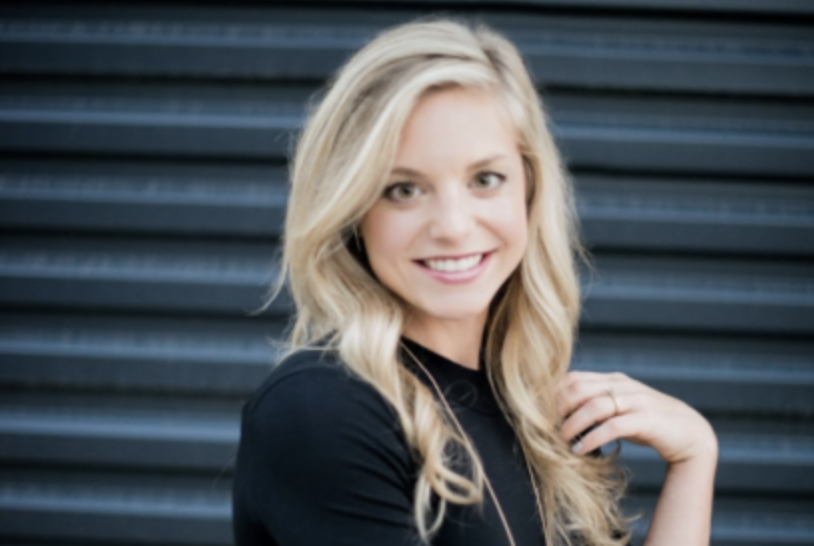
Robert White is the Founder & CEO of Sound Sustainability, a Seattle Founder Institute portfolio company developing an affordable and customizable over-the-counter hearing aid for adults with mild-to-moderate hearing loss, that users can purchase online. The company’s mission is to improve hearing health and increase access, because everyone has the right to hear.
The medical diagnostic and device startup recently won the WRF Capital Grand Prize at the 2021 Hollomon Health Innovation Challenge for their approach to improving access for hearing impaired or challenged individuals.
Watch the full interview with Sound Sustainability CEO Robert White below:
Key Topics Include:
- Founder Robert White’s personal background and startup story
- Traditional barriers to Hearing Aid access & how FDA regulations of OTC devices are changing
- Sound Sustainability’s tech pipeline in Virtual Hearing Tests + Hearing Aid medical devices
- Social Impact at the startup, from enabling accessibility to full hardware product lifecycle
- Predictions for Future of technology for the Hearing Impaired
OTC Hearing Aids point toward a more accessible future
When Sound Sustainability founder Robert White lost all hearing in his own left ear while serving in the US military, he realized firsthand the extent to which ability to hear impacts quality of life, as well as how the market and access to hearing aid tech had not kept pace with the overall innovation landscape.
The timing is right for Sound Sustainability’s innovative approach to hearing aids. Over the counter (OTC) hearing aids are actually a brand new market opportunity in the United States—as CEO White explains in the interview, a law established in 2017 as part of the FDA Reauthorization Act directed the FDA to create a category of OTC hearing aids for adults who might have mild-to-moderate hearing loss. These devices are only now coming onto the market in 2020—all devices seen online or over-the-counter prior are in fact hearing amplifiers, which are not actual medical devices.
Another market barrier comes from the fact that, despite the indispensable role hearing plays in most people’s everyday lives, many insurance companies do not define a hearing aid as a “medically necessary device,” which means they don’t cover all the costs. As Robert White explains,
I don’t know about you, but to me, hearing is definitely a necessity in my life. So when that affordability is taken away, because of insurance companies or the costs that are passed onto the customer, from hearing aid dispensers or from audiologists themselves, accessibility [is impacted].
Until now, pre-OTC availability, the process of obtaining a hearing aid could be long, difficult and expensive: it would likely require first a visit to a general practitioner and next maybe a specialist, followed only then by a visit to an actual audiologist; and finally potentially coming back for multiple device fitting visits—this process could take easily 2-3 months before a user would be fitted and ready to take home their hearing aid. As Robert White explains, that timeline does not effectively meet the needs of hearing aid users.
We’re here to improve that accessibility: to be able to take a hearing test online, and be able to receive it within that same week… [Competitor hearing aid] companies now have a $5000 solution for a $500 problem—and that’s where we want to come in, to fix that.
Sound Sustainability tech: from Virtual Hearing Tests to AI in Digital Signal Processors
One of the multiple-appointments barriers to hearing aid access, pre-FDA approval of new OTC devices, was the need to take a hearing diagnostic test—this meant an in-person visit with a specialist. But according to Sound Sustainability CEO Robert White, this diagnostic requirement may also change rapidly alongside the OTC medical hearing devices hitting the market, further opening access,
We’re working to have one of the first—if not the first—FDA cleared virtual hearing tests, allowing us to improve accessibility: you don’t have to go to audiologist to take that test, you’ll be able to take it virtually online… and once that’s done, we know what your hearing levels are and we’re able to start programming your hearing aid that you are able to purchase right there and receive within a week.
Sound Sustainability CEO Robert White also predicts that AI and machine learning will have a significant role to play in the devices over the coming years, as the digital signal processor chips inside hearing aids continue to improve in producing more natural sound through the digitally device medium.
Other areas for improvement that Sound Sustainability CEO Robert White identifies include the hearing aid device housings, which haven’t changed much in recent decades. Batteries are a large part of that design—and for product lifecycle sustainability, as well as effects on the housing design, Sound Sustainability is focusing on rechargeable-only battery technology for its devices, reducing waste from single-use batteries. As the manufacturer of their own hearing aid devices, Robert White also outlines plans for a future of refurbishing and potentially donating older/used devices, further extending the hardware product’s lifecycle.
To learn more about Sound Sustainability, visit their website at SoundSustainability.org
Graduates of the Founder Institute are creating some of the world's fastest growing startups, having raised over 2BN in funding, and building products people love across over 200 cities worldwide.
See the most recent news from our Grads at FI.co/news, or learn more about their stories at FI.co/journey.



